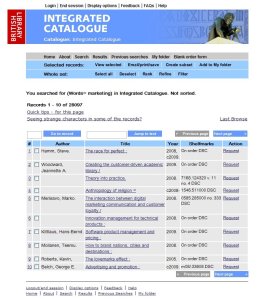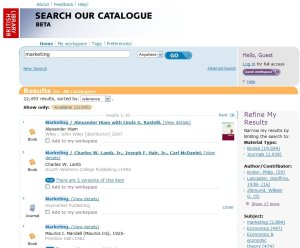According to Google there are two definitions of Google Slapping.
The first is what can happen to your site after Google have revised their PageRank link analysis algorithm. Some websites have seen their search results ranking drop through the floor after having been slapped with PageRank penalties, Google slapping PageRank Penalties, and a Wired article.
The second comes from a recent net@night podcast with Amber MacArthur and Leo Laporte. They interviewed Mr. Calzone of http://gog.is who has developed what he calls ‘the simple Google slapper’.
“Ever felt like slapping someone with a Google search, while in an IM conversation, chat-rooms, or on Twitter? simply write http://gog.is and put the keywords in the url, like this: http://gog.is/clerks. This will redirect them to the Google search for clerks.
So the next time someone asks you how to remove spyware on their windows box, tell them to http://gog.is/remove,windows,spyware. Or simply http://gog.is/install+ubuntu. You can even write http://gog.is/what/is/love.”
This is a more friendly variation of what has become a popular response to simple questions between Internet sophisticates. They create a link to Let me Google that for you, with the topic in question. The site generates an animation of typing the search into Google followed by the patronising message “Was that so hard?”, before producing the search results.
Here is an example for the word library. Incidentally, it is gratifying to see that the British Library comes up at number five in the results. So it looks as though we haven’t been Google slapped (definition one) recently.
“Let me Google that for you
This is for all those people that find it more convenient to bother you with their question rather than google it for themselves. Created by @coderifous, contributions by @rmm5t. Inspired during a lunch conversation with @coderifous, @tmassing, @rmm5t, @EricStratton, and @methodvon. Not associated with Google™ in any way.”
[youtube=http://uk.youtube.com/watch?v=uOtdsJKsDc0]







 I’m off to
I’m off to 


